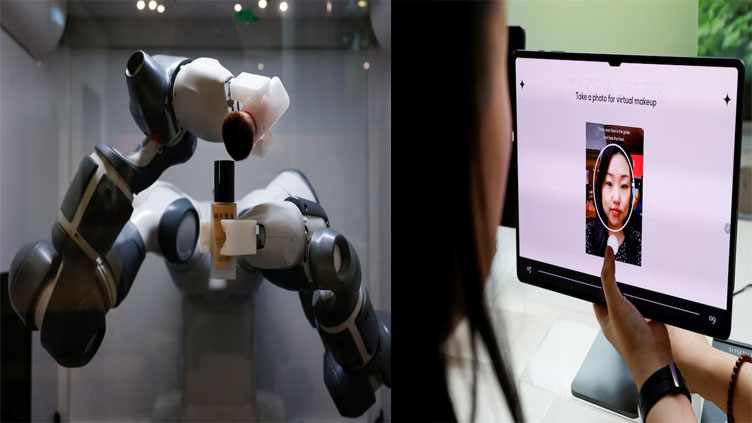AI to match you perfect shade of foundation, lipstick and cosmetic products

Technology
Global beauty industry sales including cosmetics hit $625.6 billion in 2023
SEOUL (Reuters) - Customers have booked out South Korean cosmetics giant AmorePacific's new artificial intelligence (AI) beauty lab, where robots custom mix face products and the latest technology recommends the most suitable lipstick colours.
"Everyone has their own specific skin tone, but usually they buy the most common colour available over-the-counter," said Kwon You-jin, a 32-year-old customer at the firm's bespoke skin cosmetics service.
"Knowing more data about my own skin, and seeing the before-and-after firsthand, is a very good experience," she said, after receiving an AI-generated report on the condition of her skin. A robot then mixed a foundation that perfectly matched her skin tone.
More cosmetics firms are embracing AI to boost sales, with global brands such as L'Oréal S.A. and LVMH-owned Sephora using it to tailor products to customers' needs.
Global beauty industry sales including cosmetics hit $625.6 billion in 2023, climbing steadily annually since dipping in 2020 during COVID-19 according to Statista Market Insights.
AmorePacific said it uses AI to recommend the best choices for a customer from 205 different skin foundations or 366 different lip product colours.
"We used deep learning, machine learning techniques to take the process that experts use to evaluate data from many peoples' skins into an (automated) service," said engineer Lee Young-jin, an adviser for AmorePacific's custom beauty business.
Analysts said using AI instead of human consultants could speed up product development and reduce variables.
"No matter how professional an expert is, individual deviations can be large, and evaluating cosmetics by consulting 30 to 40 experts all the time is difficult," said Yang Yong Suk, principal researcher at South Korea's Electronics and Telecommunications Research Institute (ETRI) who co-developed a deep learning model, for a cosmetic product's texture.
"These days, product development time has shortened, and an ever-larger amount of new products are launched faster," Yang added. "Combining AI technologies could lower hurdles further."
The market for using AI in beauty and cosmetics industries is forecast to more than double from $3.27 billion in 2023 to $8.1 billion in 2028, as services such as personalised beauty recommendations, skin analysis and diagnostics, and virtual makeup artists expand, analysis provider Business Research Company said in January.


